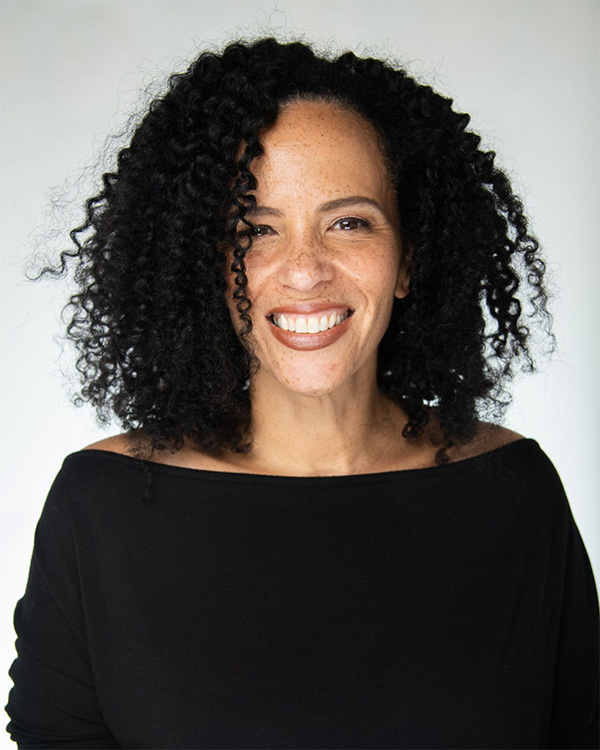AU’s Detective of Chemistry: Professor Raychelle Burks
 American University’s Raychelle Burks is an award-winning analytic chemist with expertise in forensic science, separation science, colorimetric and luminescent assay development, spectroscopy, and image analysis. This summer, she was named a 2022 American Chemical Society Fellow for “outstanding achievements in and contributions to science, the profession and the Society.”
American University’s Raychelle Burks is an award-winning analytic chemist with expertise in forensic science, separation science, colorimetric and luminescent assay development, spectroscopy, and image analysis. This summer, she was named a 2022 American Chemical Society Fellow for “outstanding achievements in and contributions to science, the profession and the Society.”
As a chemistry enthusiast, Burks is known for igniting her students' appreciation of chemistry through innovative projects, multimedia education tools — and lots of pop culture references! She helped create SciPop Talks!, a popular talk series blending science and pop culture. She has appeared on the Science Channel's Outrageous Acts of Science, the Smithsonian Channel’s The Curious Life and Death Of, American Chemical Society Reactions videos, and Royal Society of Chemistry podcasts. She has also appeared at genre conventions including DragonCon and GeekGirlCon, and she writes the forensic science/true crime column “Trace Analysis” for Chemistry World.
After graduate school, Burks worked in a crime lab, which informed her research focus on field-ready, robust, and low-cost analytical methods. At American University, her research team focuses on the design of colorimetric and luminescent sensor arrays for the detection of analytes of forensic and national security interests with accompanying image and chemometric analysis. Burks is also affiliated with the National Science Foundation Center for Computer Assisted Synthesis, which has been awarded Phase II funding ($20 million over five years). She is part of a team focused on creating and using analytical methods for evaluating chemical reactions, which will provide standardized data sets for computational models that will allow chemists to discover functional molecules for applications in medicine, materials science, energy, and beyond.
We asked Burks to share some insights into her career, research, teaching style, and focus on STEM equity issues:
Q. You have appeared on TV, in podcasts, at large genre cons, and you’ve written a science-meets-true crime column. You have a gift for making science fun and accessible. How do you do it?
A. We all love a good story — to tell and to listen to! Science is a way to explore and tell stories. I approach science communication in the style of "have I got a story for you!"
Q. What exactly is an analytical chemist?
A. Analytical chemists usually don't make chemicals, we find chemicals. We're the detectives of chemistry! I focus on finding chemicals of forensic and security interest like drugs, explosives, and chemical weapons. We find these chemicals by exposing them to other chemicals that change color or glow in their presence. The combination of colors produced and the intensity of these colors — which we track using images — allows us to differentiate suspect chemicals. Colors and their intensity all have numerical values, so we can compare these values statistically to classify chemicals with confidence.
Q. How did working in a crime lab influence your research today?
A. It gave me insight into the realities of the job in terms of time, budget, standard equipment, case load, workflow, etc. In developing new techniques and methods, I always keep in mind how easily and inexpensively modifications and inventions can be integrated into a typical workplace and workday. No matter the field, some of our best innovations have been the easiest to institute while having huge impacts!
Q. You have been involved in STEM equity and social justice work, both nationally and internationally. Can you share some of this work and what it has revealed about STEM and inclusivity?
A. I had the opportunity to serve on the National Academies of Sciences, Engineering, and Medicine's Committee on Enhancing the US Chemical Economy Through Investments in Fundamental Research in the Chemical Sciences, which recently released a 200-plus page report containing a chapter dedicated to preparing and empowering the next generation. In our extensive review of relevant data, we found that "while efforts have been made to cultivate and maintain diverse, inclusive, and equitable work and educational spaces, there continue to be strong barriers that prevent talented individuals from entering or staying in the chemical sciences.”
Similar findings have been found across STEM disciplines. There are many factors that have excluded individuals from historically marginalized communities from STEM and we suggest a range of strategies — encompassing individuals and institutions — to make STEM more inclusive and equitable. As with science in general, our work is never done! We can always find more ways to make STEM spaces welcoming and supportive for all.